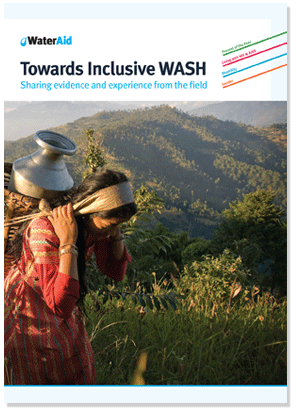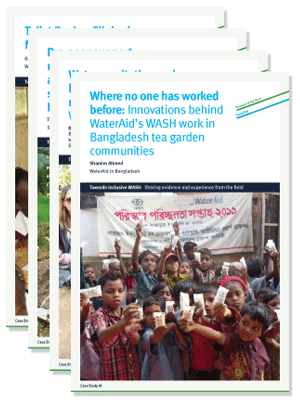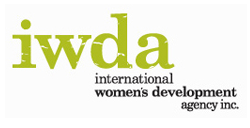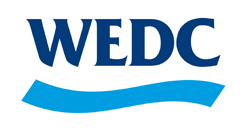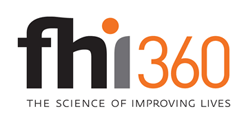Building skills towards inclusive water, sanitation and hygiene
World Water Day 2016
Why achieving gender equality is central to solving the global water crises.
The month of March celebrates two important days: it begins with International Womens Day (8 March) and ends with World Water Day (22 March).
I’m bringing the two together to illustrate why women’s empowerment and solving the global water crisis are integral to one another.
In developing countries women and girls often play a central role delivering water to their community. Typically women and girls spend a large part of their day walking long distances to collect water. After carrying heavy tubs of water home along uneven terrains they then spend time preparing the water to drink, using it to prepare and cook food for their families.
Today marks the 23rd annual World Water Day, and this year’s theme is “water and jobs”. It presents an opportunity to pause and recognise the contribution that women and girls make in addressing the global water crisis.
In Timor-Leste WaterAid has been working with women in rural communities to make water more accessible. Women have been trained to become technical specialists as they fix existing water points in their community that were left broken following the war for independence.
This has meant that the women and girls don’t have to spend hours a day tackling the uneven terrain to collect water.

Photo credit: WaterAid/Tim Greenwood.
Julia Soares, 37, from Timor-Leste says, “We used to go to the river to collect water. I had to walk through a lot of grass and forest to get there. It took one hour from here and one hour back. I had to collect water three times a day.”
Girls in the communities now have more time to spend in school and women have more time to participate in economic activities. Women and girls now have greater capacity for independence and economic contribution, and feel freer to do leisure activities.
Julie continued, “We are really happy to have clean water. Now there is clean water it is very easy for us to cook food, to wash and use the toilet. I can concentrate on working the farm and looking after the children.”

Young children in Timor-Leste enjoying the clean water. Photo credit: WaterAid/Tim Greenwood.
This reminds us also that there is a strong connection between two of the United Nation’s Sustainable Development Goals: Goal 5 seeks to achieve gender equality and empower all women and girls and Goal 6 aims to achieve access to water and sanitation for all. As the global community works together to achieve the Global Goals by 2030, Goal 5 and Goal 6 will not be achieved without the other.
This World Water Day, let’s recognise that the rights of women and girls are a central pillar of addressing the global water crises and achieving gender equality. By recognising this and working with women to increase their capacity in WASH, women and girls can be empowered and achieve progress towards gender equality.
